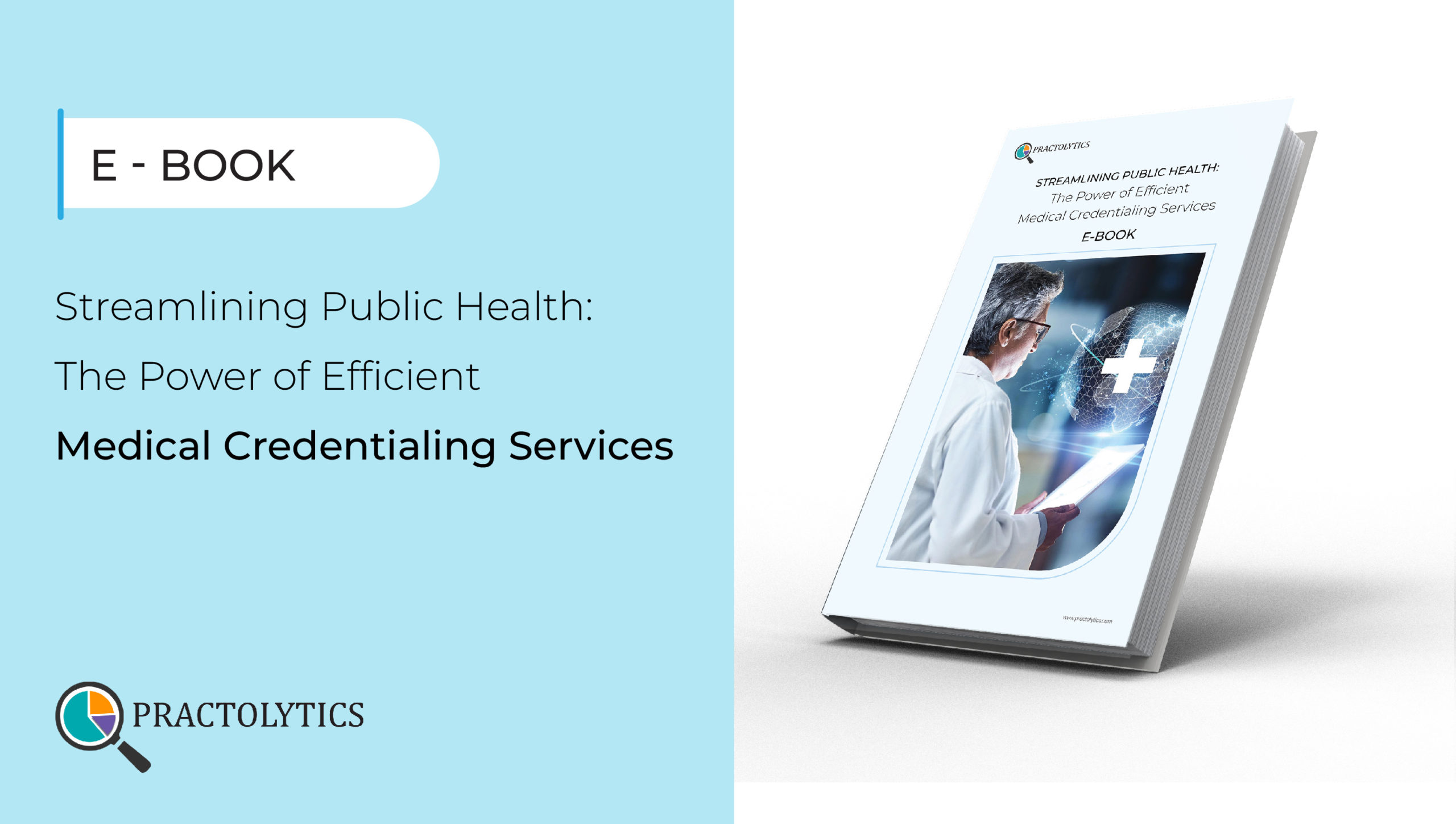

Streamlining Public Health: The Power of Efficient Medical Credentialing Services
- Public health systems rely on medical credentialing to ensure quality care, regulatory compliance, and risk mitigation.
- Credentialing verifies healthcare providers’ qualifications, licenses, work history, and malpractice records to maintain high standards.
- Challenges in public health credentialing include managing diverse provider types, large volumes of data, limited resources, and the need for quick emergency credentialing.
- Solutions include centralized credentialing systems, standardized procedures, outsourcing to experts like Practolytics, and using advanced credentialing software.
- Practolytics offers efficient credentialing services with primary source verification, background checks, ongoing monitoring, and technology-driven processes.
- Best practices for public health credentialing include automation, regular audits, continuous training, policy clarity, and collaboration between healthcare providers and credentialing teams.
- Effective credentialing services ensure patient safety, build public trust, and enable timely deployment of skilled healthcare professionals in public health organizations.
Download the FREE Guide
Download the FREE Ebook
- Public health systems rely on medical credentialing to ensure quality care, regulatory compliance, and risk mitigation.
- Credentialing verifies healthcare providers’ qualifications, licenses, work history, and malpractice records to maintain high standards.
- Challenges in public health credentialing include managing diverse provider types, large volumes of data, limited resources, and the need for quick emergency credentialing.
- Solutions include centralized credentialing systems, standardized procedures, outsourcing to experts like Practolytics, and using advanced credentialing software.
- Practolytics offers efficient credentialing services with primary source verification, background checks, ongoing monitoring, and technology-driven processes.
- Best practices for public health credentialing include automation, regular audits, continuous training, policy clarity, and collaboration between healthcare providers and credentialing teams.
- Effective credentialing services ensure patient safety, build public trust, and enable timely deployment of skilled healthcare professionals in public health organizations.

